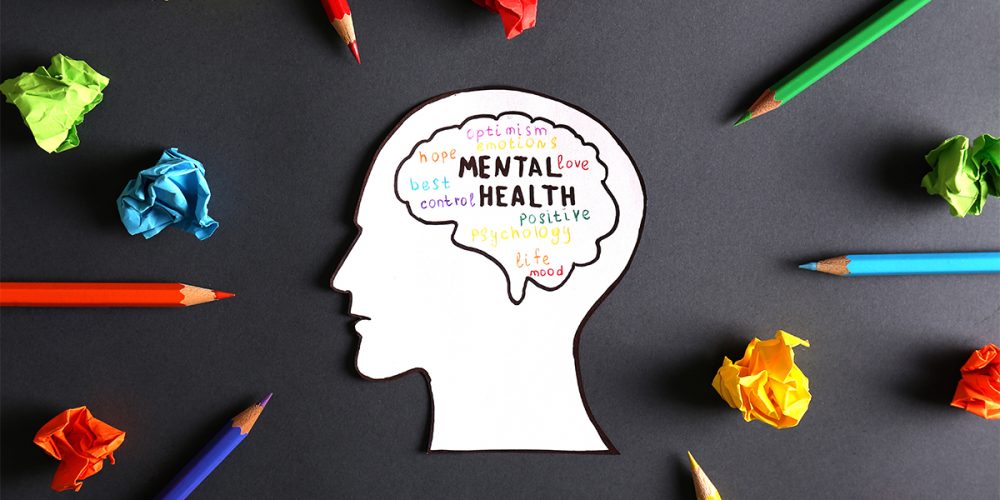With the COVID-19 pandemic still placing significant burdens on communities across the world, it is no shock that an emphasis on mental health is extremely important. The Kaiser Family Foundation (KFF) recently reported that 4 in 10 adults have reported symptoms of anxiety and depressive disorder during the COVID-19 pandemic. They also conducted a Health Tracking Poll beginning in July 2020 and found more specifically that adults are reporting specific negative impacts on their mental health and well-being that include difficulty sleeping or eating, increases in alcohol consumption or substance use, and worsening chronic conditions due to stress and worry. [1]
The information found and presented by KFF displayed not just the increase in mental health concerns due to COVID-19, but also, people have suffered from mental health concerns prior to the pandemic and will likely continue if something isn’t done.
During the month of May, the goal was to raise awareness through education about mental health and provide available resources that can be useful now into the future.
Mental Health Facts & Statistics[2]
- 1 in 5 adults in the US experience mental illness
- 1 in 20 adults in the US experience serious mental illness
- 17% of youth (6-17 years old) experience mental health disorders
- Anxiety Disorders and Depression are among the top mental health conditions
- Having a mental illness may have a “ripple effect” and cause an increase of or in:
- Chances of developing cardiovascular or metabolic chronic conditions
- Likelihood of substance use
- Unemployment
- Dropping out of high school/not continuing education
- Visits to the emergency room/hospitalizations
- Homelessness
- Incarceration
- Economic hardship
Impact of COVID-19[3]
The burden of the COVID-19 pandemic has become even more abundantly clear through statistics found from 2020 to 2021. The following supports the findings from the Kaiser Family Foundation:
- 4 in 10 adults report being even more anxious now than last year.
- 43% of adults said the pandemic has had a serious impact on their mental health
- Young adults age (18-29 years old) are more likely to report being more anxious now, than a year ago.
- Safety concerns have increased from 56% (2020) to 64% (2021).
- Hispanic/Latinx individuals (73%) and Black individuals (76%) are more anxious about COVID-19 than non-Hispanic/Latinx and non-Black individuals (59%).
Due to the pandemic, it has also been reported that:
- Among adults, 17% are drinking more alcohol and involved in substance use
- 33% of adults (40% of women) report gaining unwanted weight during the pandemic.
Risk Factors[4]
There exists a variety of factors that may increase chances of developing a mental illness, especially during such a vulnerable time. Some of these factors include but are not limited to:
- Family history of mental illness
- Stress/Chronic Stress such as loss employment or loved one (other causes or due to COVID-19)
- Chronic medical conditions
- Traumatic experiences
- Substance use
- Previous mental illness/untreated mental illness
Screening, Services, and Resources
If you have not taken anything else from this article, this is where you will have key information that can be valuable to you or someone you might know who is contending with concerns surrounding their mental health.
Screening
A mental health screening is an exam of your emotional health. It helps find out if you have a mental disorder.[1] Screening is essential to receive the proper care and treatment options. Here are 3 screening tools that can be beneficial when seeking mental health care and treatment:
- Mental Health America – Mental Health Test
- Northwestern University Mental Health Screening
- Psychology Today Mental Health Assessment
Services
Mental health is an important aspect of overall health and quality of life. Identifying services can be challenging, however, national, and local organizations exist to support individuals in finding cost-effective care and treatment options.
- National Institute for Mental Health
- Chicago Department of Public Health – Find CDPH Mental Health Services
- Psychology Today – Find A Therapist
Resources
The following resources are aimed at supporting the screening and support tools provided above in this article. In combination with education, resources are essential to identifying the best route for mental health care.
- National Alliance of Mental Illinois – Chicago
- Mental Health American – Illinois
- Illinois Department of Human Services – Mental Health
Mental health is a crucial component of overall health and well-being. With the onset of the COVID-19 pandemic, it is becoming increasingly important to acknowledge the disparities and inequities that exist within mental health and amid the most vulnerable populations. With May being Mental Health Awareness month, we hope you find this article useful as you and/or your loved ones seek and care for your mental health now and beyond.
[1] Nirmita Panchal, R. K., & 2021, F. (2021, February 10). The Implications of COVID-19 for Mental Health and Substance Use. KFF. https://www.kff.org/coronavirus-covid-19/issue-brief/the-implications-of-covid-19-for-mental-health-and-substance-use/.
[2] National Alliance of Mental Illness. (2021, March). Mental Health By the Numbers. National Alliance of Mental Illness (NAMI) . https://www.nami.org/mhstats
[3] Brooks, M. (2021, May 4). Poll Shows Worsening Impact of COVID on Mental Health. WebMD. https://www.webmd.com/lung/news/20210504/poll-shows-worsening-impact-of-covid-on-mental-health.
[4] Mayo Clinic Staff. (2019, June 8). Mental illness. Mayo Clinic. https://www.mayoclinic.org/diseases-conditions/mental-illness/symptoms-causes/syc-20374968.
[5] U.S. National Library of Medicine. (2021, March 4). Mental Health Screening: MedlinePlus Medical Test. MedlinePlus. https://medlineplus.gov/lab-tests/mental-health-screening/.



